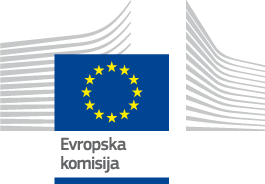

Good Practice Project
Murcia is a region of exceptional marine biodiversity, which enjoys a high level of protection, including two marine protected areas (MPAs). Fisheries and tourism are important activities in the area, both of which are highly dependent on the quality of the marine ecosystem and biodiversity. However, much illegal fishing takes place during the summer months, when tourism leads to high demand in restaurants for local fish and shellfish, putting heavy pressure on certain valuable species such as grouper, lobster and pollock.
For some time, the Cabo de Palos marine reserve has been patrolled by a company contracted by the regional administration. However, poaching continued unabated, with illegal fishers simply adapting to the timing of the regular patrols. Then, in 2018, the FLAG decided to fund a new initiative from the Cofrafía (fishing organisation) of Cartagena.
Thanks to a FLAG grant, the local cofradía has been able to pay a local fisher to stop fishing for three months over the summer, and instead use his boat to strengthen surveillance activities in the reserve during these critical months. Upon finding illegal activity, the fisher signals to the person that they cannot fish and call out the region’s coast guards to officially sanction the poachers. This has led to ensuring better prosecution of illegal fishing, while also acting as a deterrent to would-be poachers in the area.
This collaboration between the regional administration and the local fishers has made a real difference to enforcing protection measures. The professional fishers know which boats are allowed to fish, when and where – and which should not be fishing. Thanks to this project, fishers have been empowered to protect their resource and have taken ownership of fishing controls. They have seen that it pays off with improved fish stocks, improving acceptance and respect of fishing rules by the sector itself. Moreover, pressure on fishing has been reduced during the summer months, as there is one less fishing vessel operating, with that one vessel focusing on control activities.
This project offers an example of multi-level governance and could be transferred to other areas where better protection of the marine environment is needed. Even though environmental protection is usually a public competence, the local knowledge and contacts of fishers can add a valuable boost to enforcing protection of marine spaces.
Lessons: The FLAG project replicated a WWF-funded pilot project from 2017. This allowed them to take advantage of the lessons learnt by a private fund to make a public investment. Establishing a rotation of vessels allowed fishers to share the responsibility by all being involved in the project activities. Nevertheless, for this type of collaboration between public administrations and fishers to be effective, communication and mutual trust are fundamental. This seasonal initiative could also be taken as a pilot for increasing support during the whole year.
Contribution to CLLD objective: (e) strengthening the role of fisheries communities in local development and the governance of local fisheries resources and maritime activities.
| Total project cost | €40 940 |
|---|---|
| FLAG grant |
€40 940
|
| Timeframe of implementation | From Jul 2018 to Sep 2020 |
|---|---|
| Sea Basins |
|
| Type of area |
|
| Theme |